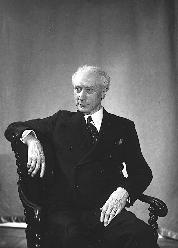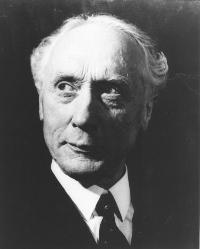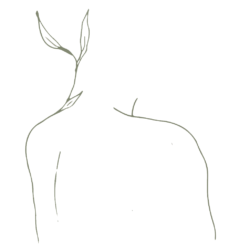
Frederick Matthias Alexander was an actor borned in Tasmania, Australia (1869-1955).
He developed his career as an actor and was specially interested in the recitation of Shakespeare monologues. In the exercise of his profession, he began to have repeated vocal problems that caused him to lose his voice and prevented him from continuing to act normally. Doctors and professors recommended rest, which allowed him to recover his voice momentarily, since shortly after his return to the stage the hoarseness reappeared.
This is how he came to the conclusion that something he did with himself was the source of his problems. Then he began a long process of self-observation in which he discovered that excessive muscle tension was the cause of his problem. Which was not limited to his vocal apparatus, but included a generalized body-mind pattern of the use of himself. Over the years he discovered that many other people had the same problem as well.
He discovered that when there is no tension in the neck, the head does not compress the spine is long and free, in response to gravity.
The natural relationship between the head, neck and back gives place to the balance and integrated coordination of the person.
This principle influences profoundly our health and well-being.
Given the success of his recovery, different personalities from the world of theatre, politics and other areas, asked Alexander if he could teach them his technique. This is how he began his practice as a teacher in 1909 and his first training school in London in 1931.
Alexander wrote four books:

- Man’s Supreme Inheritance (1910), Mouritz, London, 1996.
- Constructive Conscious Control of the Individual (1923), STAT Books, 1997.
- The Use of the Self (1932), Victor Gollancz,
London , 1985. - The Universal Constant in Living (1942), Mouritz,
London, 2000.
There are two books from Alexander translated in spanish:
- El uso de sí mismo (Paidós, Barcelona, 1995)
(The Use of the Self) - La Constante Universal de la Vida (La Liebre de Marzo, Barcelona, 2009)
(The Universal Constant in Living)

